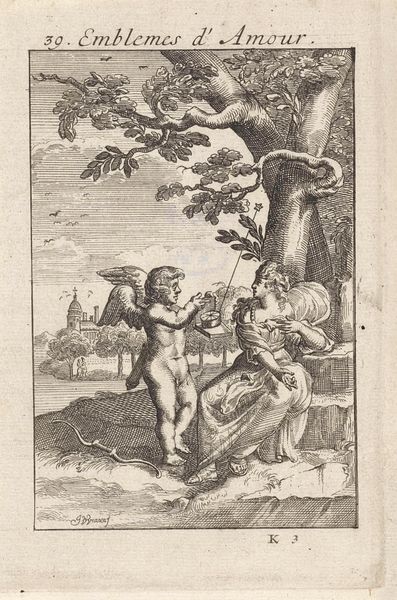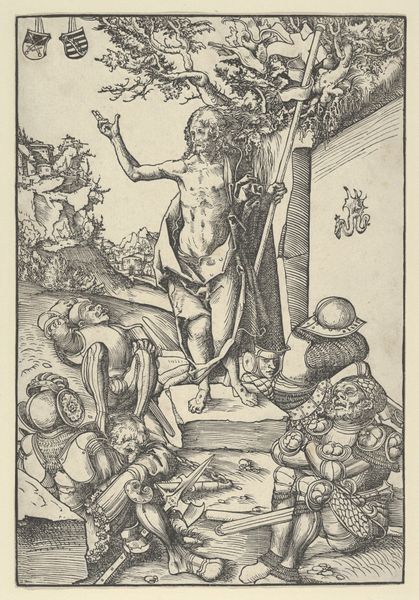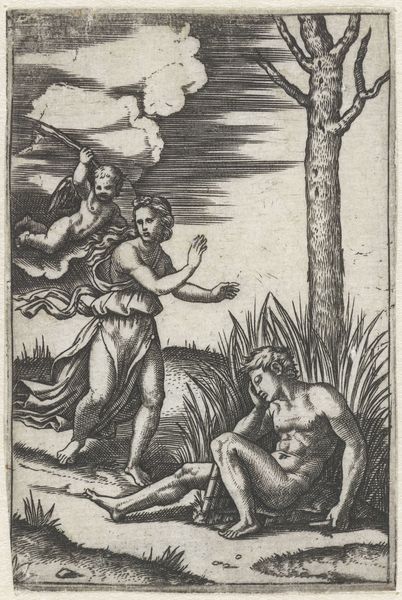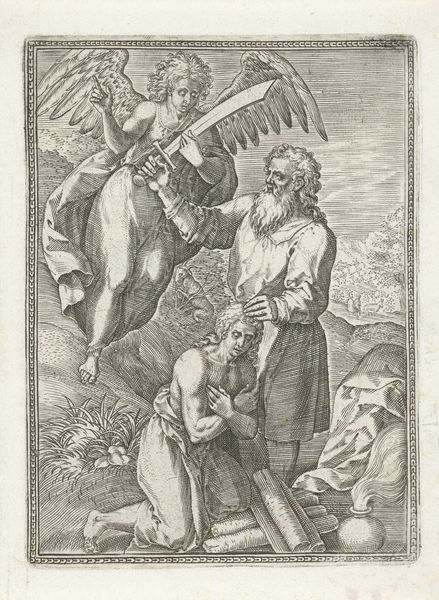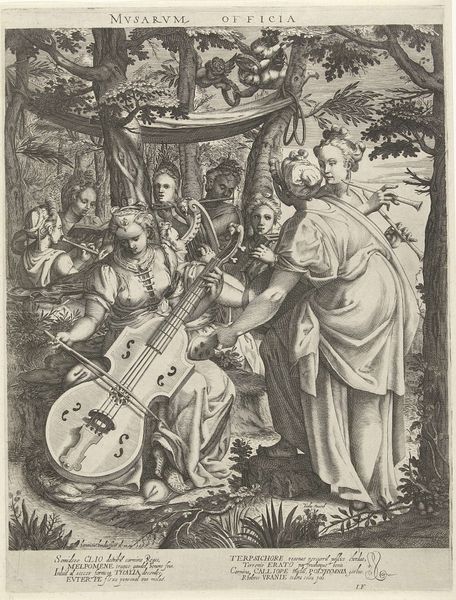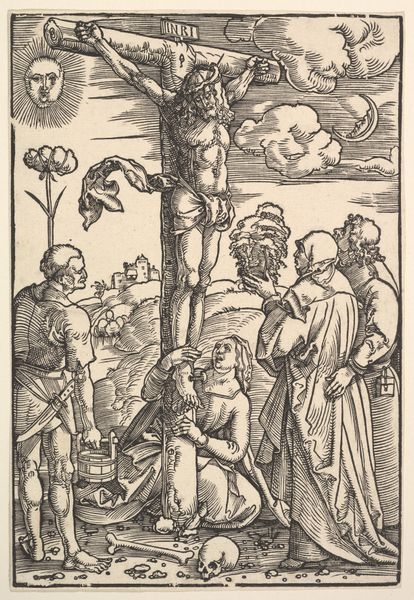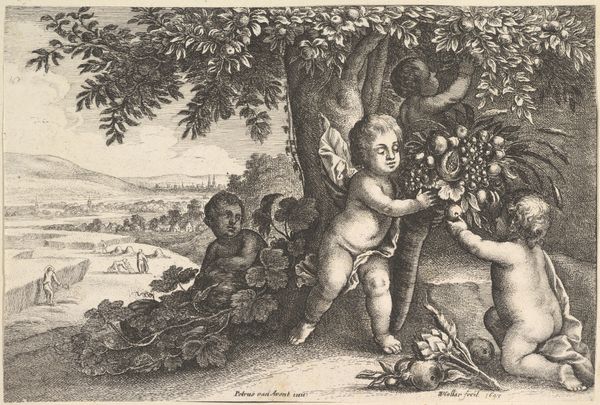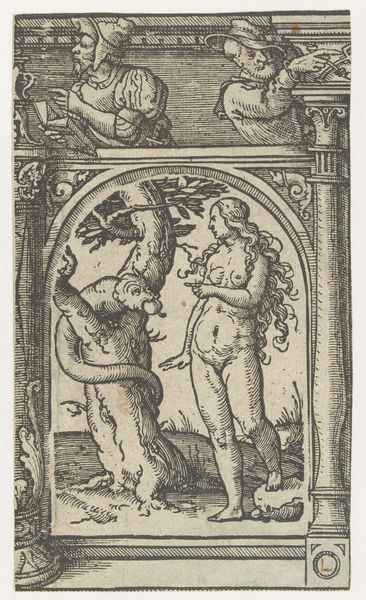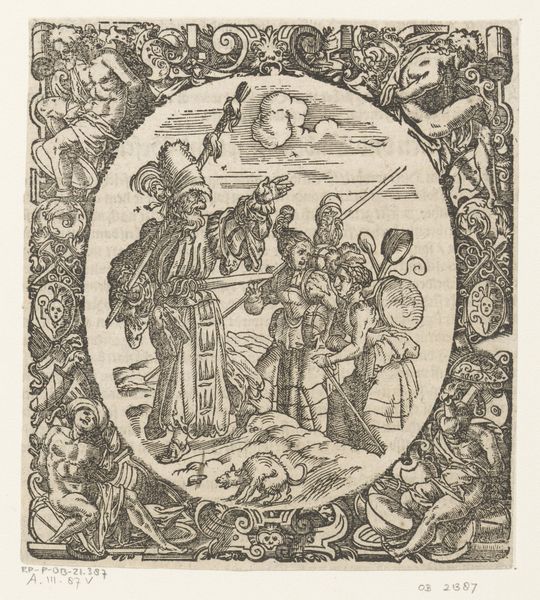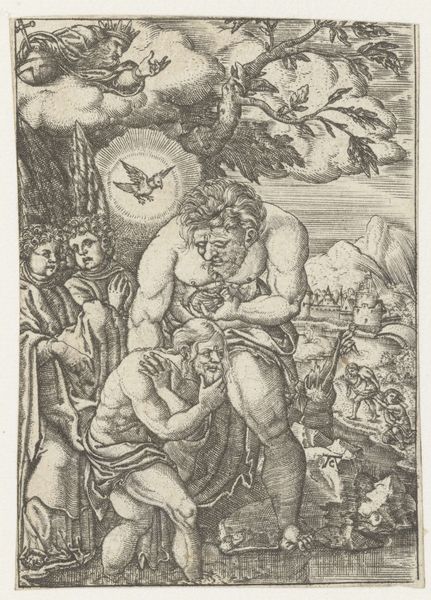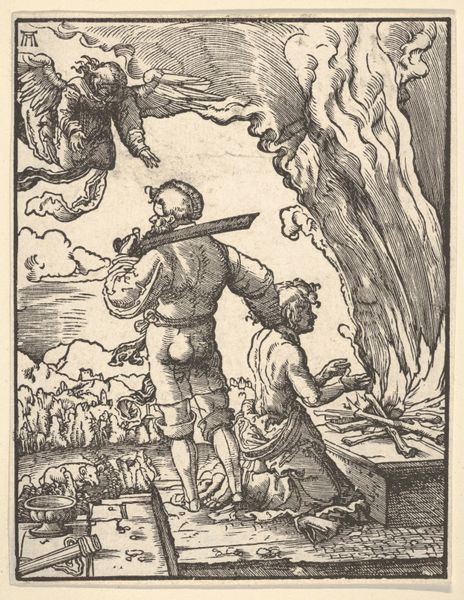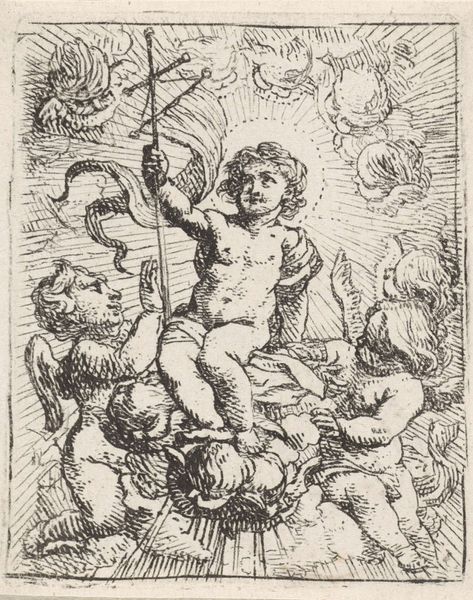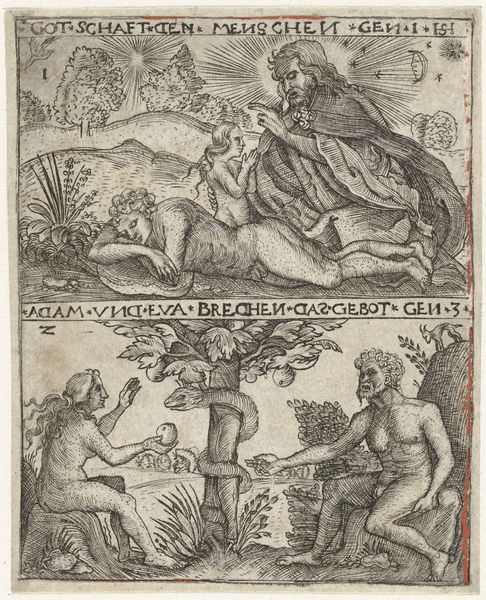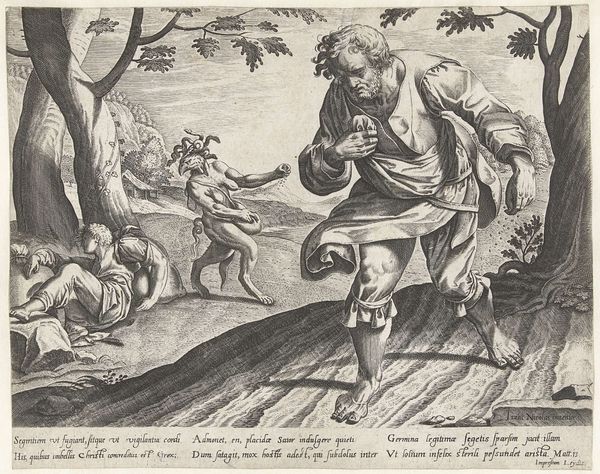
print, etching, engraving
#
medieval
#
narrative-art
#
pen drawing
# print
#
pen illustration
#
etching
#
old engraving style
#
figuration
#
line
#
history-painting
#
engraving
Dimensions: height 90 mm, width 70 mm
Copyright: Rijks Museum: Open Domain
This is the left portion of "Sayings of Solomon," made by Gerard de Jode, a Flemish cartographer, printer, and publisher who was active in Antwerp during the 16th century. This miniature print on paper was made using engraving techniques. It represents a pivotal shift in artmaking, from unique works of art to repeatable images. The design is incised into a metal plate, inked, and then pressed onto paper. Prints like these were more affordable and accessible than paintings, influencing a broader audience. The clean, precise lines of the engraving lend themselves to a clear depiction of biblical scenes. The texture of the paper subtly softens the image, giving it a tactile quality. The labor involved in creating such a detailed engraving was considerable. The work mirrors the era's increasing commercialization, where images could be mass-produced and traded, much like any other commodity. Considering its materials, processes, and social context enhances our understanding of this compelling artwork, bridging the gap between fine art and craft.
Comments
No comments
Be the first to comment and join the conversation on the ultimate creative platform.
